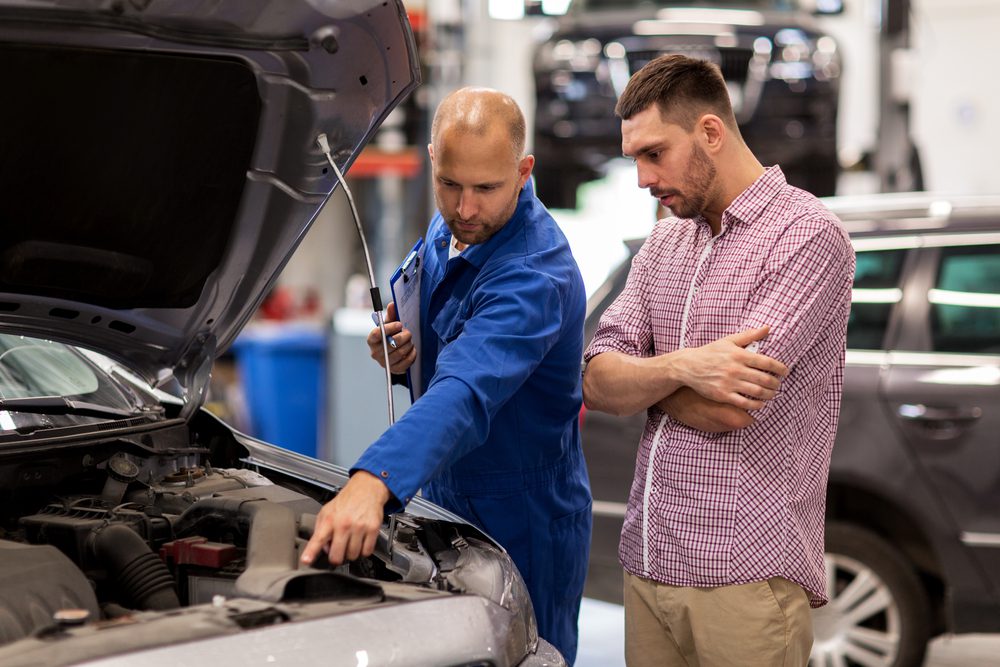Owner’s clinics are nothing new in the car business. Dealerships have been trying to teach new buyers about their vehicles (and the dealership’s service offerings) for many years. Some dealers do it well, others struggle to get buyers to show up. It’s not that the information presented is not valuable, but we live in a loud and hectic world. There is so much information and stimulation constantly vying for our attention. It is really hard to get people to carve out time in their busy schedule to learn about their new car, especially if they don’t understand the importance. There’s also the fear that there will be an attempt to sell them something. It is almost impossible to sell anything to anybody anymore. Buyers don’t want to know why you think they should buy vehicle service from you, they want you to prove why they need it and how it will affect them if they don’t. According to Andreas Eisingerich and Simon Bell of Sloan Review: “Efforts to enhance customers’ service knowledge and provide them with the skills and abilities to use critical information can help companies differentiate their service offerings and provide a strong foundation on which to build trusting relationships with customers.”
So educating your customers is very important, but how can it be done in an age of hyper-busyness and short attention spans?
Owner’s Clinics
We’ve already covered why buyers wouldn’t want to show up for a clinic, but owner’s clinics are not necessarily dead. If there is enough of a hook, you can get owners to attend, but people want an experience. They want to be entertained. They also want to receive value for their time. Creating value in an ownership education experience starts on the sales floor. If your sales staff is enthusiastic about the product, knowledgeable and able to connect with customers, this will open the door for buyers to begin the learning process. Dealers that provide a fun and satisfying buying experience are more likely to get those owners to come back and learn more about their vehicle. In addition to assisting buyers with understanding and using their new vehicle’s features, owners’ clinics are a great platform for educating customers about the unforeseen car troubles that may arise and encouraging them to be prepared. When they hear it from you, they will begin to trust you. When time comes for the maintenance or repairs you have taught them about, they will come to you to handle it. But it is all part of the overall dealership experience, and it starts on the sales floor.
Ongoing Education in the Service Drive
As much as we would like to tick a box and move on, customer education is not a one-and-done proposition. The most valuable education you can give your customers is in the service drive each and every time they visit. As mentioned earlier, it is almost impossible to sell something to somebody in today’s world. This is especially true with service. Most service customers come in with their guard up, afraid of being lied to or manipulated into buying something they don’t need. This fear comes from misunderstanding. Service advisors and even technicians have a duty and responsibility to educate and to build rapport. Part of this process involves making suggestions for service and maintenance that is not necessarily related to the reason for their visit. There is a huge focus right now on natural health and holistic healing for the body. Preventive medicine is much easier and cheaper than healing an ailment. This same philosophy could hold true with vehicle service, if customers are educated. It’s not that customers don’t want to be offered service suggestions, it is just that they want to understand why or how the suggested service , and to educate about why it is important. If a customer understands that ignoring a repair, or passing on maintenance could cost them hundreds down the road, or become a safety issue, they will be more likely to oblige. According to NADA data for 2018, the average dealership only closes 20-30% of their potential sales in service. This is a shocking statistic. How are 70% of potential sales being missed? In short, it is because service advisors don’t take time to educate and present information thoroughly and then ask for the sale.
Conclusion
Clients not only want, but they expect to be given professional guidance and direction to help them make an informed decisions about their vehicles. They look to dealership personnel as the experts. Dealerships can either own this role and take control, or continue to operate like mindless drones, missing countless opportunities along the way.








